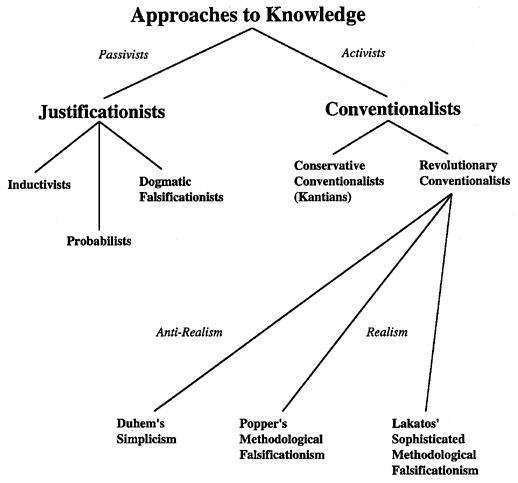
Dogmatic (or naive) falsificationists believe the slogan, "Humans propose, nature disposes." They believe in a rigorous division between theory and observation, and that observation should be the final arbiter of a theory's fate.
Science progresses through a series of deductive modus tollens arguments. First, a theory is proposed. A theory can be inspired in any number of ways, not necessarily by prior observation or experiment. Next, a hypothesis, H, is derived from the theory. It must be possible to "falsify" (or contradict) the hypothesis by some observational consequence, C*. Finally, the observation or experiment is carried out to determine if C* in fact holds. If so, then the theory is rejected; if not, then the theory is "corroborated," i.e., it lives to be tested another day. Corroboration does not imply acceptance of a theory as true, nor as more probably true; this proposition distinguishes falsificationists from inductivists and probabilists. The logical syllogism below represents the form taken by any hypothesis test, according to dogmatic falsificationists.
IF H, THEN NOT C*.
C*.
_____________________
THEREFORE, NOT H.
For a further discussion of the application and limits of dogmatic and methodological falsificationism, see this experimental demonstration of why the earth may really be flat.

Last modified March 1998
Visited times since July 2001
Comments?
Home to Metatheory
Home to Great Ideas in Personality